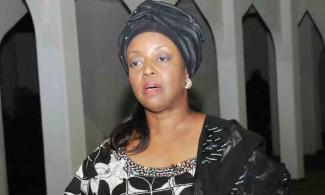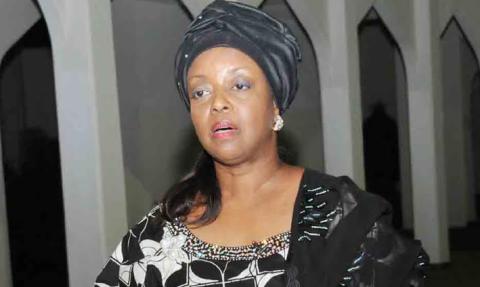
One day after President Goodluck Jonathan authorized the release of a version of a forensic audit of $20 billion reportedly missing from Nigeria’s crude oil sales, an oil industry expert retained by SaharaReporters to look at the report has stated that the Nigerian government appeared to have pressured the auditors, PricewaterhouseCooper, to revise parts of its preliminary report.

After analyzing the audit report, the expert concluded that the much-anticipated release of the audit report of Nigeria’s accounts and the Nigerian National Petroleum Corporation (NNPC) has provided few insights into the $20 billion that was allegedly not remitted to the Federal Accounts.
Mr. Jonathan authorized the release of a version of the report one day after President-elect Muhammadu Buhari disclosed that his administration would immediately investigate the allegation by former Central Bank Governor Sanusi Lamido Sanusi to the effect that the NNPC had failed to account for more than $20 billion in crude oil exports by Nigeria. Mr. Sanusi, who was fired by President Jonathan shortly after he made the allegation, is now the Emir of the ancient city of Kano.
“The report reveals that PricewaterhouseCooper was recalled by Nigeria’s auditor general in January 2015 to share its original findings with the NNPC,” said the expert. He added, “At this point, PwC received ‘a significant amount of additional information’ from the NNPC, which was not reportedly not provided during the original review period. Consequently, the so-called updated report released by Jonathan contains significant changes from the previous report.”
He stated that it was important to investigate the nature of the “additional information” produced by NNPC “to determine whether it was simply a tactical deployment of deceptive data and information to color the audit outcome.”
According to the Abuja-based expert, “it is highly curious that the NNPC was apparently inept in the quality of information it originally provided to the auditors. Given the charged nature of the controversy generated by the matter, one would expect that the NNPC would be scrupulous in providing exhaustive information to PricewaterhouseCooper at the initial stages of the audit.” He stated that it was important to examine and evaluate the additional information to ascertain that it was not part of a scheme to compromise the audit process.
The oil sector expert added that it was significant that, despite the revision, the sanitized version of the audit still indicated “there was a shortfall of $1.48 billion in oil revenue that the NNPC needed to refund to the Federal Accounts.”
Our expert also remarked that the PwC report also admitted that it did not even constitute an audit. He pointed to a section of the report that read, “the procedures we performed did not constitute an examination or review in accordance with generally accepted standards or attestation standards.” The PwC report also warned that its findings cannot “be relied upon by any other party (third party)” to Nigeria’s auditor-general. “This is another curious aspect of the audit,” according to our expert. “Basically, it’s as if the audit company was telling the world that the work they set out to do did not follow stringent standards of auditing. And yet, the Jonathan administration had promised Nigerians a thorough audit. And a thorough-going audit is certainly what the government owes the Nigerian people.”
PwC is one of the world’s leading audit and consulting companies. SaharaReporters could not ascertain how much PwC charged the Nigerian government for its work on the saga of $20 billion in missing oil revenue.